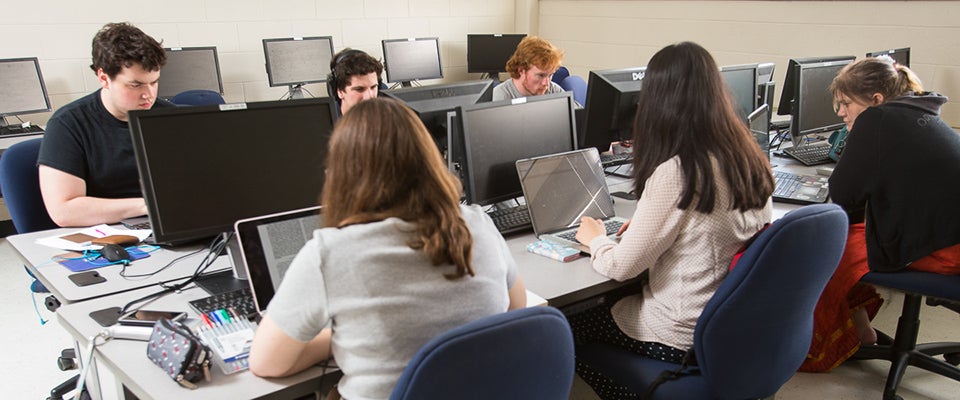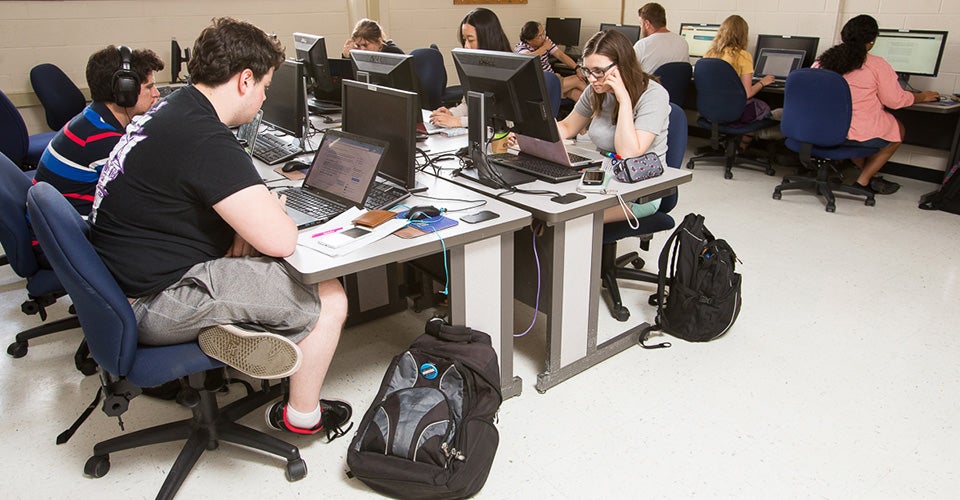RIGOROUS ENGINEERING
ECU wins historic $2 million grant for computer science
ECU has been awarded a $2 million grant from the National Science Foundation (NSF) to research new ways to teach computer science and to improve graduation and retention rates within the discipline.
The five-year grant, awarded to the College of Engineering and Technology’s Department of Computer Science, is the largest total ever awarded to the college. Dr. Venkat Gudivada, chair of the Department of Computer Science, is the principal investigator.
The award allows the department to research curricular innovations, faculty development and diversity in student learning. Results will be widely disseminated to other universities that are looking to update how they educate students in computer science and other related disciplines.

Dr. Venkat Gudivada
Data gathered by Code.orgshows that North Carolina has 18,623 open computing jobs, which is 4.5 times the average demand rate in the state. However, North Carolina had only 1,284 computer science graduates in 2015. According to Gudivada, it’s imperative to find unique and innovative ways to keep students energized and engaged in the discipline.
Finding a revolutionary approach to computer science education, he said, is the project’s main goal.
“We must move beyond the current programming-centric approach to computer science education to one that is systems-centric and rooted in rigorous engineering principles,” Gudivada said. “Our results will provide insight to help increase student educational attainment and academic success.”
“I thank the NSF for their belief and trust in this project,” said Dr. David White, interim dean of the College of Engineering and Technology. “Dr. Gudivada has assembled a stellar team whose results will help academia meet the national and global demand for computer scientists and software engineers.”
Specific goals of the project include:
- Working with community colleges and early college, North Carolina high schools to recruit more underrepresented students and increase the number of transfer students.
- Using free and open-source software to provide a real-life teaching and learning environment and transforming the traditional computer science education approach to a software engineering-centric approach.
- Interspersing professional skills development in the curriculum via team projects, internship and co-op opportunities, undergraduate research, entrepreneurship and professional networking.
- Personalizing teaching and learning inside and outside the classroom.
- Providing a motivating and welcoming academic environment, proactive student advising and degree planning and positive faculty-student relationships.
“Research shows that half of all STEM jobs will be in computing by 2020,” said Gudivada. “Advances in the cloud and mobile computing, web technologies, big data, artificial intelligence and machine learning will make it imperative that we produce software engineers who can leverage these technologies to solve global and societal problems.”
Co-principal investigators for the grant are ECU faculty members Dr. Junhua Ding and Dr. Qin Ding in the Department of Computer Science and Dr. Marjorie Ringler and Dr. William Sugar in the College of Education.

A revolutionary approach to teaching computer science could come out of research that will be conducted at ECU.
